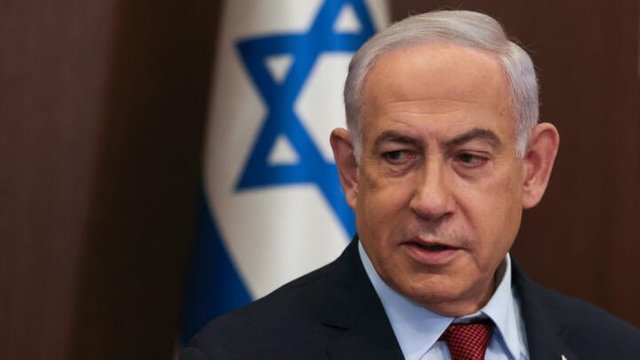
In a significant development in the Middle East, recent reports suggest that Israeli Prime Minister Benjamin Netanyahu has agreed in principle to a ceasefire with Hezbollah, the Lebanese militant group backed by Iran. This news comes amidst heightened tensions and ongoing conflicts along the Israel-Lebanon border.
Background of the Conflict
The relationship between Israel and Hezbollah has been fraught with conflict since the latter's formation during the Lebanese Civil War. Over the years, skirmishes, rocket attacks, and full-scale wars like the 2006 Lebanon War have marked their interactions. Here's a brief timeline:
- 2006: The Second Lebanon War, where Hezbollah and Israel engaged in a 34-day conflict, ending with UN Resolution 1701.
- Recent Years: Sporadic rocket fire, border clashes, and mutual accusations of ceasefire violations.
The Ceasefire Agreement
Terms of the Deal: While details are still emerging, the ceasefire reportedly includes a temporary halt in hostilities to allow for diplomatic negotiations. This could involve:
- Withdrawal of Hezbollah fighters from areas near the Israeli border.
- Discussions on the implementation of UN Security Council Resolution 1701 which aims for a demilitarized border.
Implications:
- For Lebanon: A ceasefire might bring relief to residents of southern Lebanon who have suffered from periodic Israeli strikes.
- For Israel: It could mean the safe return of tens of thousands of Israelis displaced from their homes near the border due to Hezbollah rocket fire.
Political Context: This decision by Netanyahu might be seen as a strategic move to de-escalate tensions:
- Domestic Pressure: With an election year looming, Netanyahu might be seeking to show his capability in managing security while also addressing the displacement of northern Israeli residents.
- International Relations: The U.S., France, and other allies have been pushing for a ceasefire to prevent a broader regional conflict.
Public Reaction
X Posts Insight:
- Many posts on X (formerly Twitter) express skepticism over the longevity of the ceasefire, given the history of similar agreements being violated.
- Some users welcome the move as a step towards peace, while others criticize it as a sign of weakness or tactical retreat.
Web Sources:
Conclusion
While this ceasefire agreement could mark a turning point, its success hinges on the implementation and adherence by both parties. The effectiveness of UN oversight, the disarmament of Hezbollah, and the political will from both Israel and Lebanon will be crucial.
What This Means Going Forward:
- Monitoring: The international community will need to closely monitor the situation to ensure compliance.
- Diplomacy: Whether this pause in fighting leads to a lasting peace depends heavily on diplomatic efforts.
References:
- CNN - Israel's Netanyahu has approved an emerging ceasefire deal with Hezbollah "in principle," source says
- Israel News - The Jerusalem Post - Netanyahu says IDF will continue operations despite ceasefire
Note: Always consider the fluid nature of geopolitical events and be prepared for potential reversals or escalations.
For more updates and discussions, feel free to comment below or engage with the community.
Upvoted! Thank you for supporting witness @jswit.
Downvoting a post can decrease pending rewards and make it less visible. Common reasons:
Submit